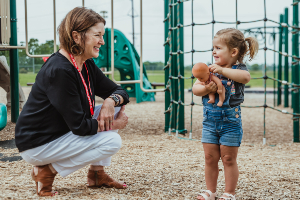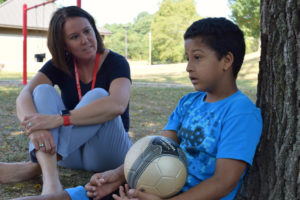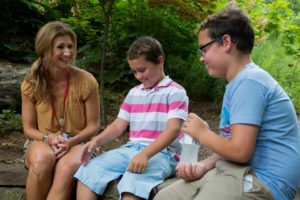For Social Work Month, we asked our licensed social workers, Shelley, Tara, and Abra to share a little bit about the difference they make in the lives of volunteers, children, and families.
Shelley Hart, Program Director
 “For me as a social worker, I think I make a difference at CASA by helping advocates to see certain situations differently. Child welfare is never black and white. And emotions are high when a child is involved, certainly. But as we know, children are always better with their families if they are safe and care is taken. So, I help my advocates put things into perspective. Do we have a parent that has a bucketful of unresolved trauma? Let’s make sure there are services in place to work on that. Do we have a parent that is abusing substances? They are not bad people but have made some unfortunate choices. What do they need to do to stay sober? Do we have a house that is messy and unsafe? Does the parent have different standards of cleanliness than the advocate, is the parent depressed, do they lack the skills? How can we help them in that situation? Again, these cases are grey and will not always have the happy ending of a beautiful reunification story. But as a CASA supervisor, I use my social work skills to point my advocates in the direction of a strengths-based advocacy, looking at what people are doing right and how we can build upon that to effect change as opposed to focusing purely on the negative aspects.”
“For me as a social worker, I think I make a difference at CASA by helping advocates to see certain situations differently. Child welfare is never black and white. And emotions are high when a child is involved, certainly. But as we know, children are always better with their families if they are safe and care is taken. So, I help my advocates put things into perspective. Do we have a parent that has a bucketful of unresolved trauma? Let’s make sure there are services in place to work on that. Do we have a parent that is abusing substances? They are not bad people but have made some unfortunate choices. What do they need to do to stay sober? Do we have a house that is messy and unsafe? Does the parent have different standards of cleanliness than the advocate, is the parent depressed, do they lack the skills? How can we help them in that situation? Again, these cases are grey and will not always have the happy ending of a beautiful reunification story. But as a CASA supervisor, I use my social work skills to point my advocates in the direction of a strengths-based advocacy, looking at what people are doing right and how we can build upon that to effect change as opposed to focusing purely on the negative aspects.”
Tara Marcom, Advocate Supervisor and Trauma-Informed Practitioner
 “One of the most valuable things I have gained and enjoyed from getting my degree and license in Social Work is truly listening to those that I am working with. Letting people talk, giving them the space and time to explain their situation, how they are feeling and how they got to this place. I’ve learned that this not only builds trust but helps people feel heard and motivates them to change their situation and want to be a healthier parent emotionally and physically. There are so many times I have met with families and no one has taken the time to just listen and understand, and I think that can be one of the greatest things we can give them. ”
“One of the most valuable things I have gained and enjoyed from getting my degree and license in Social Work is truly listening to those that I am working with. Letting people talk, giving them the space and time to explain their situation, how they are feeling and how they got to this place. I’ve learned that this not only builds trust but helps people feel heard and motivates them to change their situation and want to be a healthier parent emotionally and physically. There are so many times I have met with families and no one has taken the time to just listen and understand, and I think that can be one of the greatest things we can give them. ”
Abra Morgan, Advocate Supervisor
 “I think I have helped some of my advocates create healthy boundaries with the families, workers, foster parents they are working with. I think this is impactful because it helps prevent burnout.”
“I think I have helped some of my advocates create healthy boundaries with the families, workers, foster parents they are working with. I think this is impactful because it helps prevent burnout.”
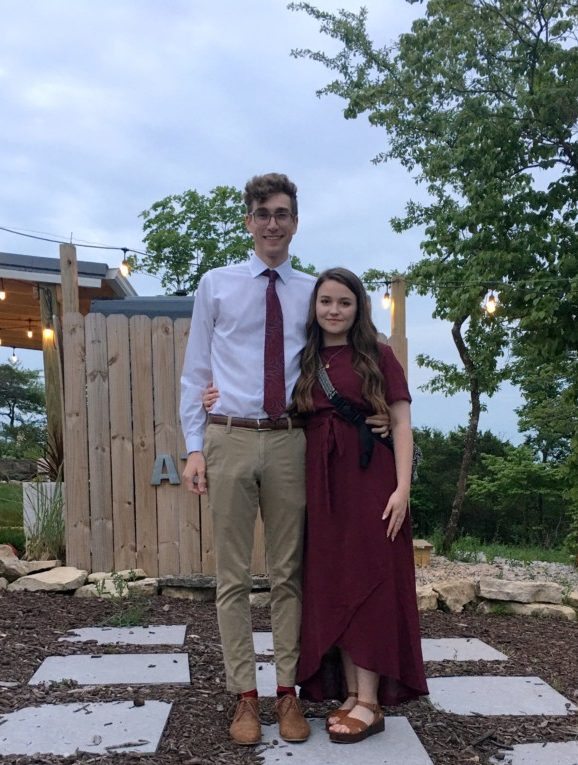 Meet Savanah Ruff.
Meet Savanah Ruff.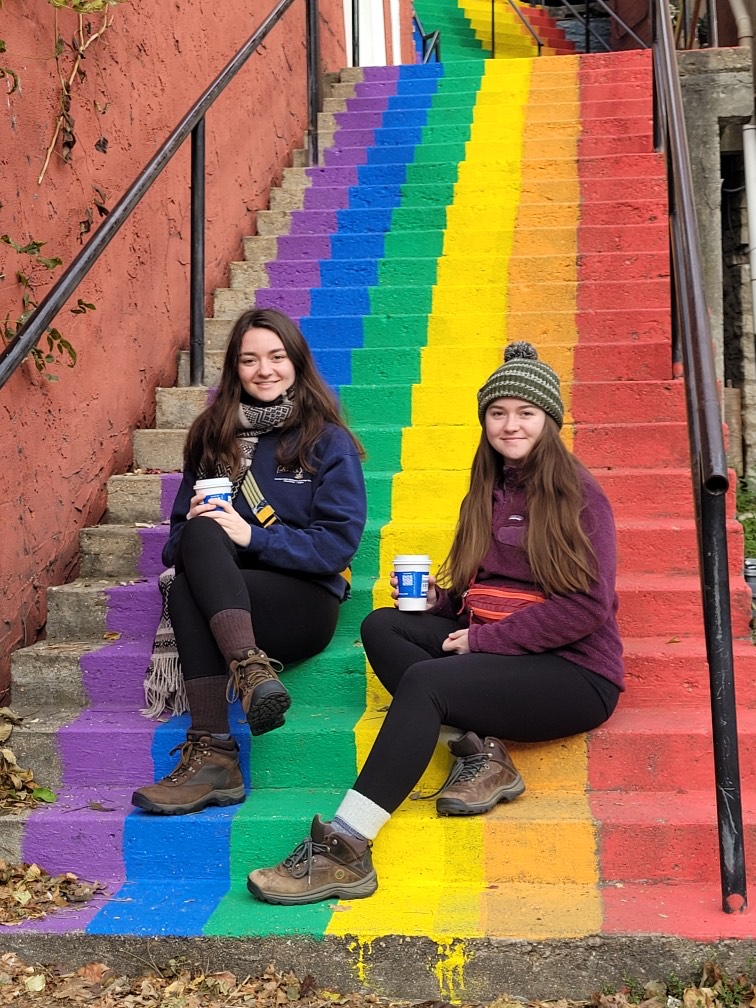
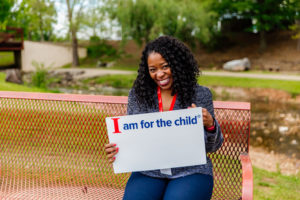 -After a long strategic journey, we now serve every child assigned to us by the court system! We finally have volunteers waiting for cases instead of children waiting for volunteers.
-After a long strategic journey, we now serve every child assigned to us by the court system! We finally have volunteers waiting for cases instead of children waiting for volunteers.

 These are just a few of the studies’ overarching findings focusing on outcomes for children who benefit from the advocacy of a CASA volunteer. CASA volunteers assure that the court and child welfare systems remain focused on the children’s wellbeing, assuring that the specific needs of individual children are addressed. As you can see, having a CASA volunteer on their case and by their side can improve almost every facet of their life: personal wellbeing, relationships, school, and permanency.
These are just a few of the studies’ overarching findings focusing on outcomes for children who benefit from the advocacy of a CASA volunteer. CASA volunteers assure that the court and child welfare systems remain focused on the children’s wellbeing, assuring that the specific needs of individual children are addressed. As you can see, having a CASA volunteer on their case and by their side can improve almost every facet of their life: personal wellbeing, relationships, school, and permanency.
 Children in foster care often have educational gaps, and these are not always immediately apparent. If not addressed early, these gaps may become larger over time, especially if the child spends a significant amount of time in foster care or if they change placements frequently. A CASA, however, will be a constant in a child’s life, regardless of where they are placed. CASAs can help fill in some of the blanks about a child’s educational history and pass on pertinent information. A complete and accurate educational background, when combined with the knowledge a CASA will have about the child as an individual, not only helps ensure the child is receiving appropriate services in their current school, but can also be passed along to any future schools which will make for smoother transitions.
Children in foster care often have educational gaps, and these are not always immediately apparent. If not addressed early, these gaps may become larger over time, especially if the child spends a significant amount of time in foster care or if they change placements frequently. A CASA, however, will be a constant in a child’s life, regardless of where they are placed. CASAs can help fill in some of the blanks about a child’s educational history and pass on pertinent information. A complete and accurate educational background, when combined with the knowledge a CASA will have about the child as an individual, not only helps ensure the child is receiving appropriate services in their current school, but can also be passed along to any future schools which will make for smoother transitions.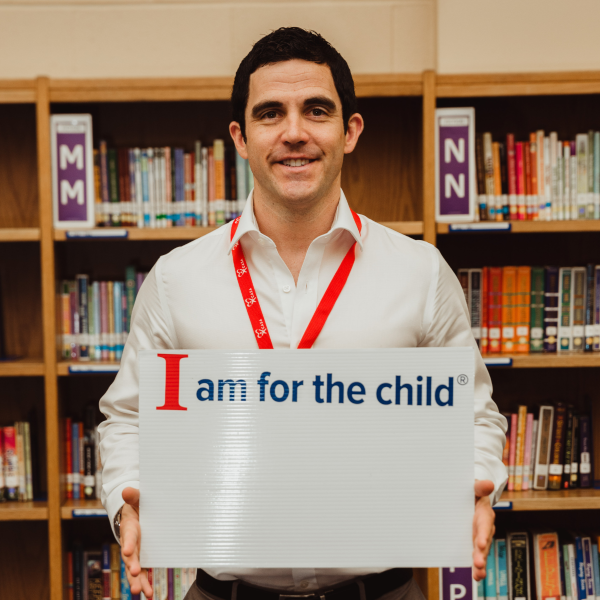 While not an exhaustive list, CASAs can support a child’s education in these specific ways:
While not an exhaustive list, CASAs can support a child’s education in these specific ways:
